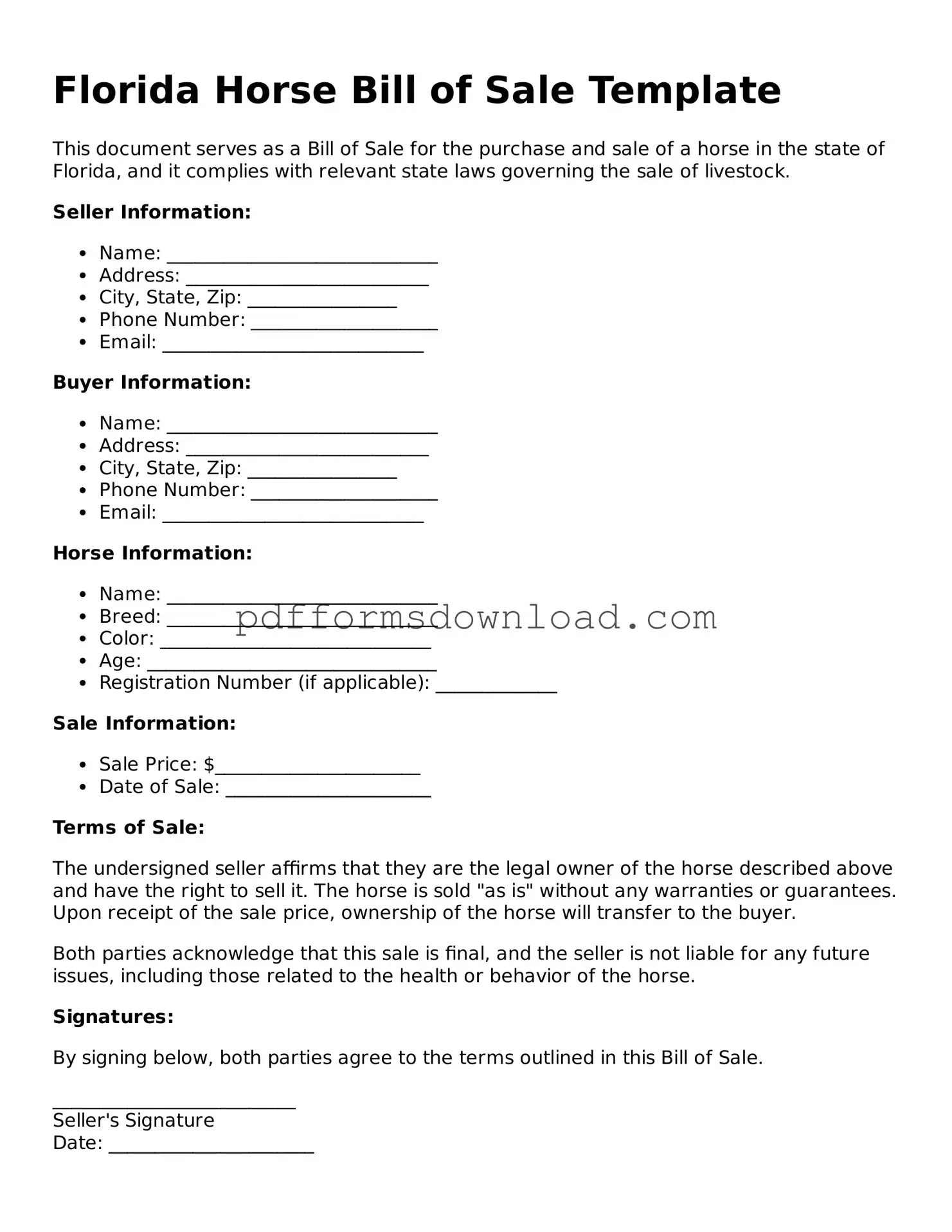What is a Florida Horse Bill of Sale?
A Florida Horse Bill of Sale is a legal document that records the sale of a horse from one party to another. This form serves as proof of the transaction and outlines the terms agreed upon by both the buyer and the seller. It typically includes details such as the horse's description, sale price, and any warranties or representations made by the seller.
Is a Horse Bill of Sale required in Florida?
While it is not legally required to have a Bill of Sale for horse transactions in Florida, it is highly recommended. Having a written document helps protect both the buyer and the seller by providing a clear record of the sale, which can be useful in case of disputes or misunderstandings.
What information should be included in the Horse Bill of Sale?
The Bill of Sale should include the following information: the names and addresses of the buyer and seller, a detailed description of the horse (including breed, age, color, and any identifying marks), the sale price, and the date of the transaction. Additionally, any warranties or representations made by the seller should be clearly stated.
Can the Horse Bill of Sale be used for other livestock?
The Horse Bill of Sale is specifically designed for the sale of horses. However, similar forms can be created for other types of livestock. It is important to ensure that the document is tailored to the specific type of animal being sold to meet any relevant legal requirements.
Do I need to have the Bill of Sale notarized?
Notarization is not a requirement for a Horse Bill of Sale in Florida. However, having the document notarized can add an extra layer of authenticity and may be beneficial if there are any disputes in the future. It is advisable to check with local regulations or legal counsel for specific requirements.
What happens if the horse is found to be unhealthy after the sale?
If the Bill of Sale includes a warranty or representation regarding the horse's health, the seller may be held responsible if the horse is found to be unhealthy after the sale. If no such warranty exists, the buyer may have limited recourse. It is essential to clearly outline any health-related claims in the Bill of Sale.
Can I cancel the sale after signing the Bill of Sale?
Once the Bill of Sale is signed by both parties, it generally becomes a binding agreement. Cancelling the sale may be difficult unless both parties agree to do so. Buyers and sellers should carefully consider their decision before finalizing the transaction.
Is a Horse Bill of Sale valid in other states?
A Florida Horse Bill of Sale may be recognized in other states, but it is important to check the specific laws of the state where the horse will be located. Some states may have their own requirements for the sale of horses, including specific forms or additional documentation.
What should I do if I lose my Horse Bill of Sale?
If the Horse Bill of Sale is lost, it is advisable to contact the other party involved in the transaction to request a copy. If that is not possible, a new Bill of Sale can be created, but both parties should agree to the terms outlined in the new document.
Where can I obtain a Horse Bill of Sale form?
A Horse Bill of Sale form can be obtained from various sources, including online legal document services, local equestrian organizations, or legal professionals. It is important to ensure that the form complies with Florida laws and includes all necessary information.

